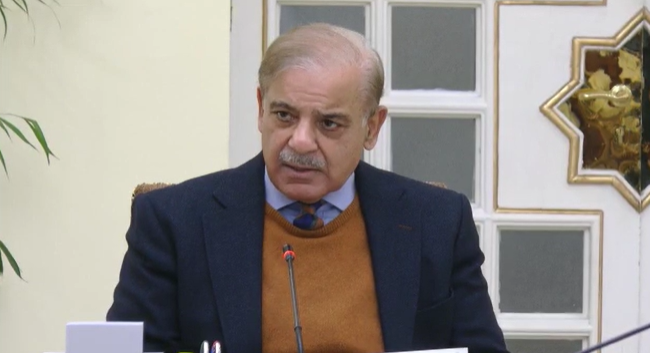Finance Minister Muhammad Aurangzeb announced the finalization of a long-anticipated trade deal with the United States. Terming it a “win-win” situation for both nations, the minister emphasized that this agreement goes beyond traditional trade arrangements and sets the stage for a deeper economic and strategic partnership.
“Today marks the culmination of the journey that we started a few months back,” said Aurangzeb in a video message released by the Ministry of Finance on Thursday.
The announcement follows high-level talks in Washington, D.C., involving Pakistan’s Finance Minister Muhammad Aurangzeb, US Secretary of Commerce Howard Lutnick, and United States Trade Representative Ambassador Jamieson Greer. Other key attendees included Pakistan’s Secretary of Commerce Jawad Paul and Pakistan’s Ambassador to the United States, Rizwan Saeed Sheikh.
According to Finance Minister Aurangzeb, the discussions extended beyond the conventional scope of trade.
“From our perspective, we were always going beyond the trade imperative,” he noted. “Trade and investments have to go hand in hand.”
Aurangzeb expressed appreciation for his economic team and acknowledged the vital role of Pakistan’s private sector in achieving this landmark agreement. He noted that both countries have shown commitment to sectoral collaboration, particularly in energy, mining, information technology (IT), and the “new economy”, which includes digital innovation and emerging industries.
“We will start with energy. Then there is mineral and mining, IT, and the new economy that we are talking about,” said the finance minister.
The trade agreement announcement came a day after former US President Donald Trump revealed on social media that Washington and Islamabad had reached a deal to collaborate on developing Pakistan’s substantial oil reserves.
“We have just concluded a Deal with the Country of Pakistan, whereby Pakistan and the United States will work together on developing their massive oil reserves,” Trump posted.
Trump further hinted at future possibilities, such as Pakistan potentially exporting oil to India—a move that could transform South Asia’s energy dynamics.
“Who knows, maybe they’ll be selling oil to India some day!”
The trade deal comes at a crucial time for Pakistan. Earlier in April, the United States had proposed imposing up to 29% tariffs on several countries, including Pakistan. However, the tariff implementation was temporarily suspended for 90 days to allow for negotiations—culminating in the current agreement.
Although exact details of tariff reductions were not disclosed, Pakistani officials confirmed that reciprocal tariff relief will be a part of the new deal, especially benefiting Pakistani exports to the US. This development is expected to boost trade volumes and enhance economic stability.
Trade between the United States and Pakistan has been growing steadily. According to data from the Office of the United States Trade Representative, the total volume of goods traded between the two countries reached approximately $7.3 billion in 2024, up from $6.9 billion in 2023.
However, the US recorded a $3 billion goods trade deficit with Pakistan in 2024, marking a 5.2% increase over the previous year. This trade imbalance underscores the importance of restructuring the relationship to make it mutually beneficial through sector-specific investments and tariff reductions.
This agreement signals a broader shift in US foreign economic policy, particularly in South Asia. With global attention on China’s expanding influence, Washington appears increasingly invested in nurturing alliances with key regional partners like Pakistan.
Finance Minister Aurangzeb echoed this sentiment in his message:
“We are in a good place today in Pakistan, in terms of where we have arrived before August 1. We have come a long way in terms of our overall strategic partnership between Pakistan and the United States.”
This sentiment aligns with recent diplomatic efforts, including meetings between Pakistani and US leadership, where shared goals in critical minerals, energy security, and technology transfer have been emphasized.
With the signing of this trade and investment agreement, both nations are poised to deepen their economic ties. For Pakistan, the deal offers a critical opportunity to attract foreign direct investment (FDI), expand exports, and modernize sectors such as energy, mining, and IT.
For the United States, the partnership serves strategic interests in South Asia, countering Chinese influence and fostering regional stability through economic collaboration.




